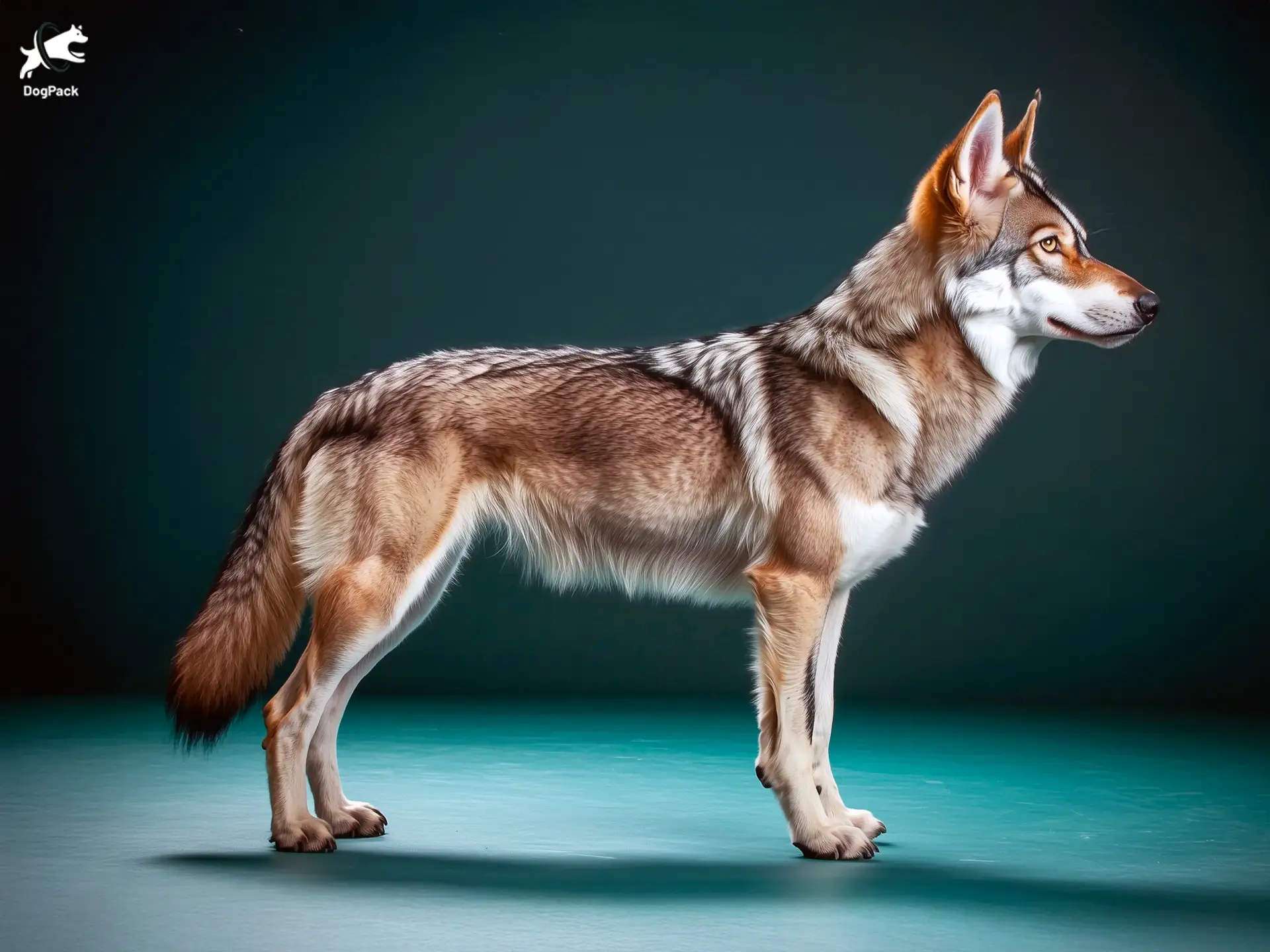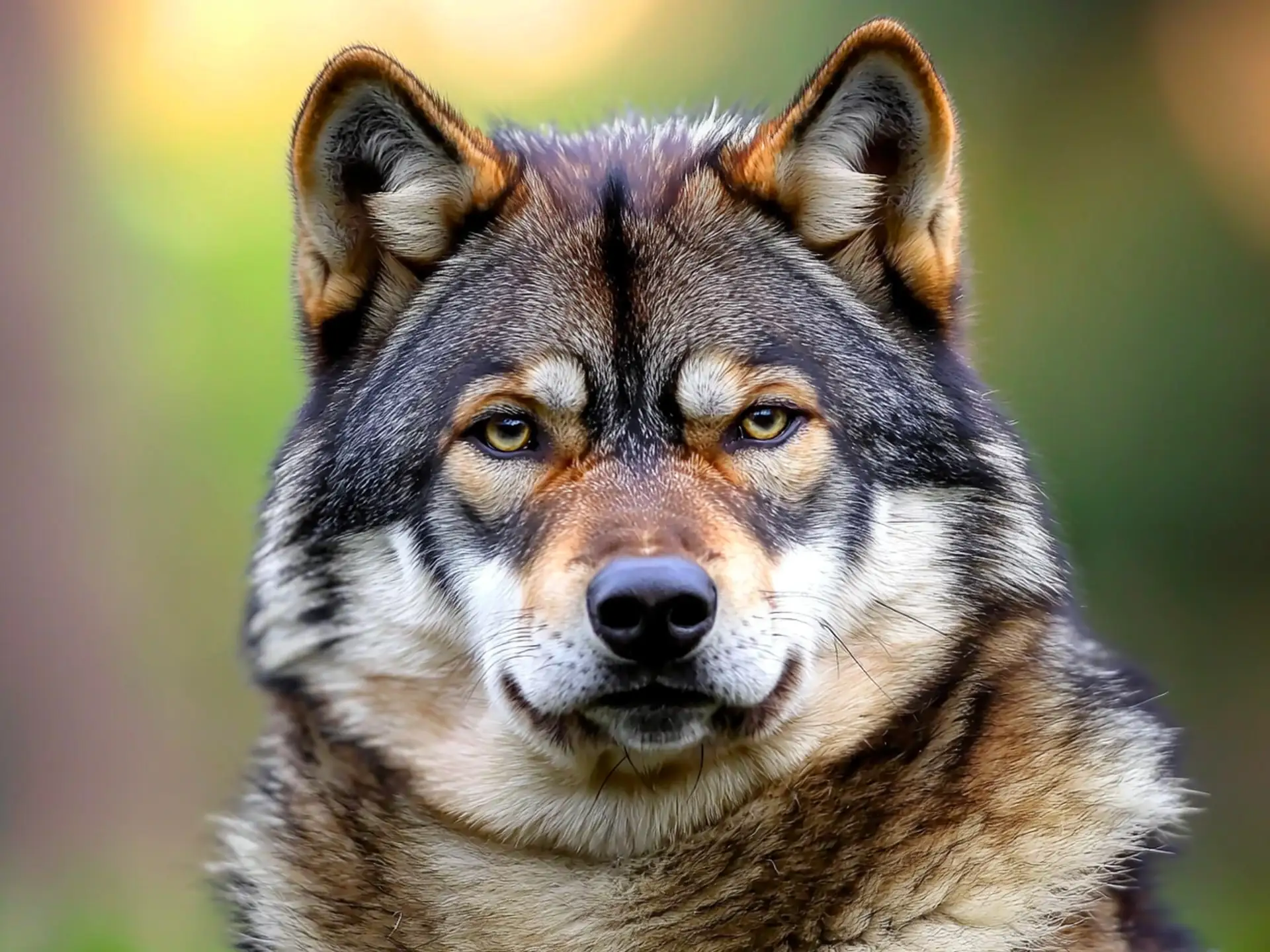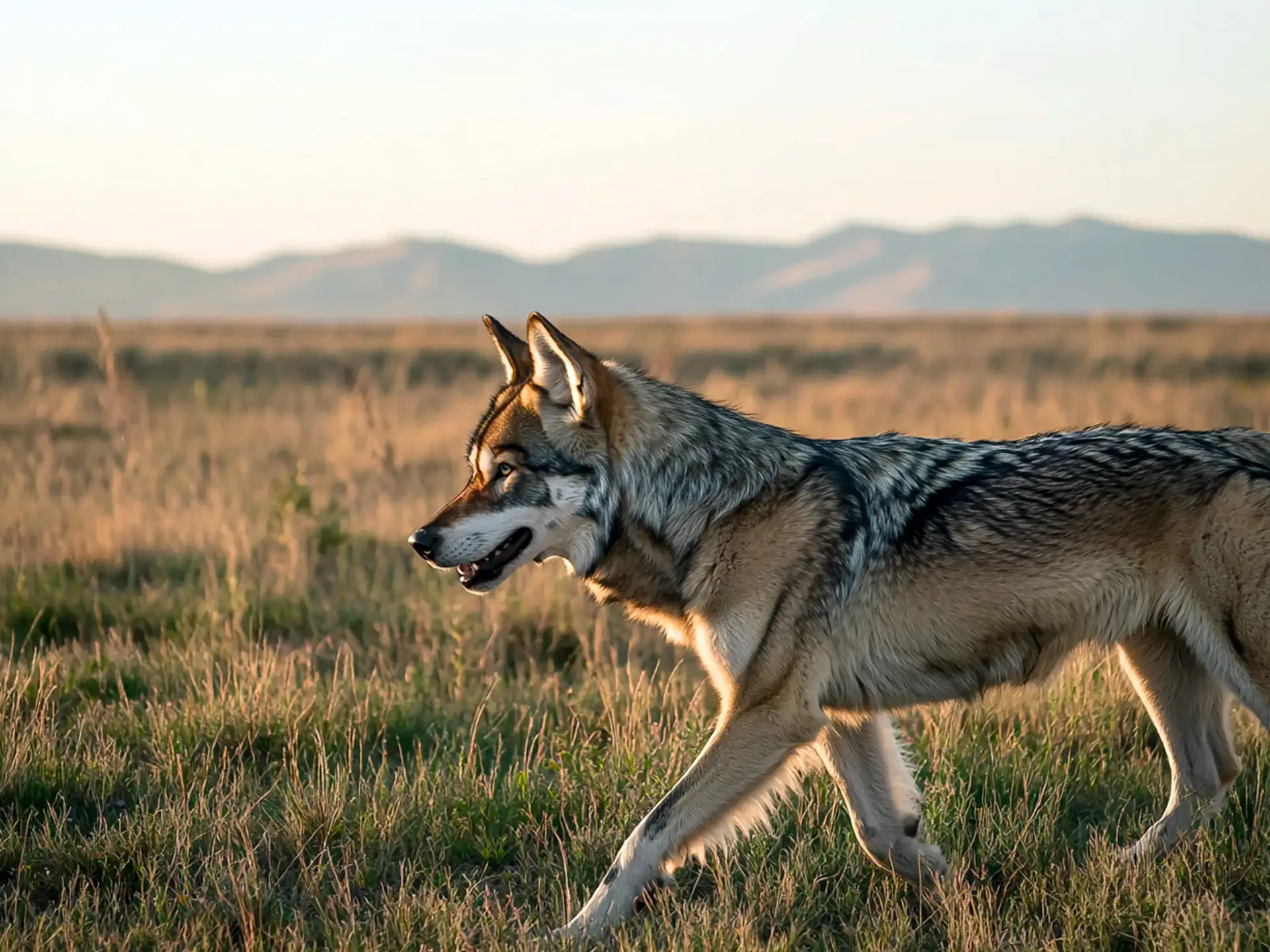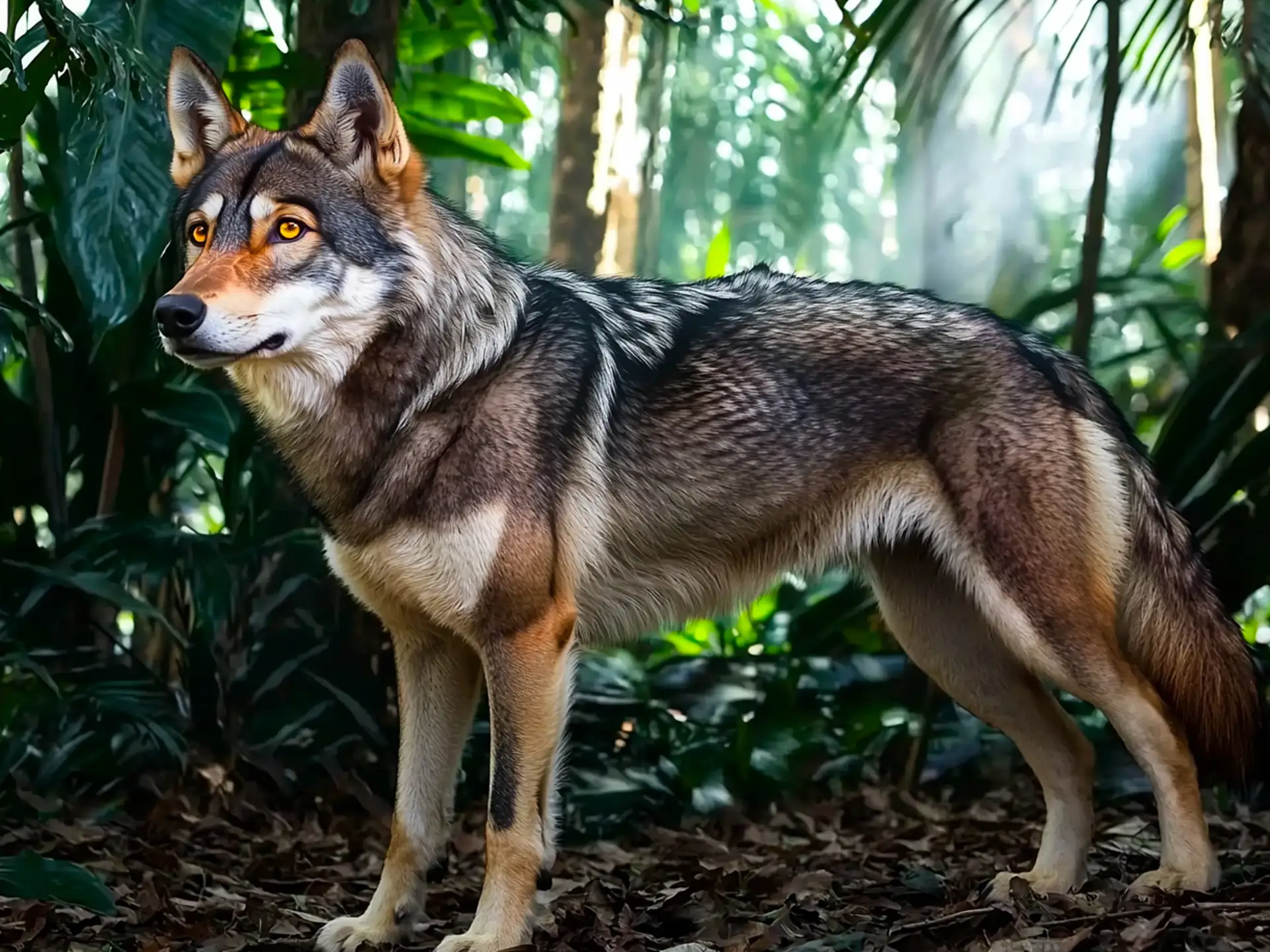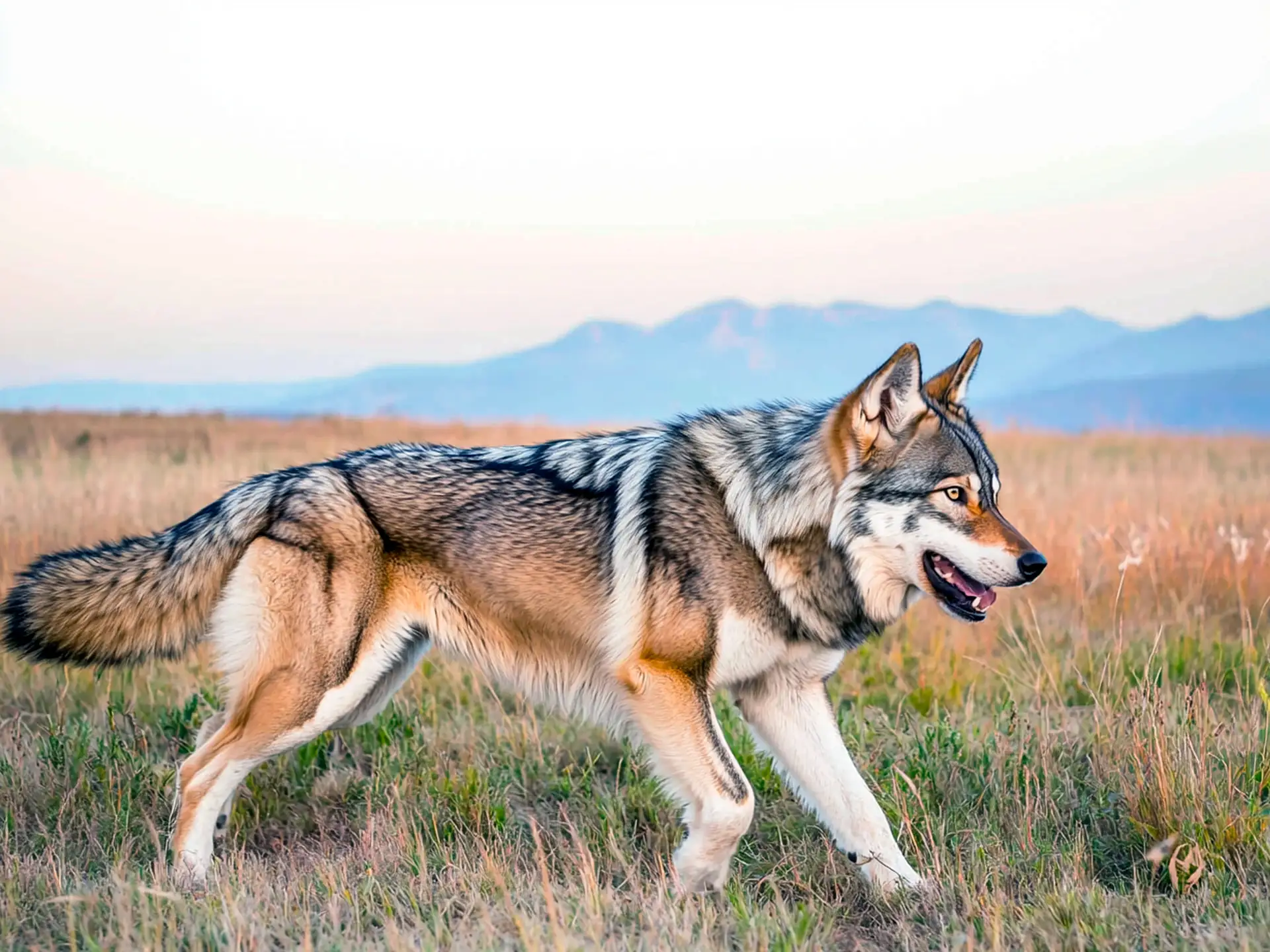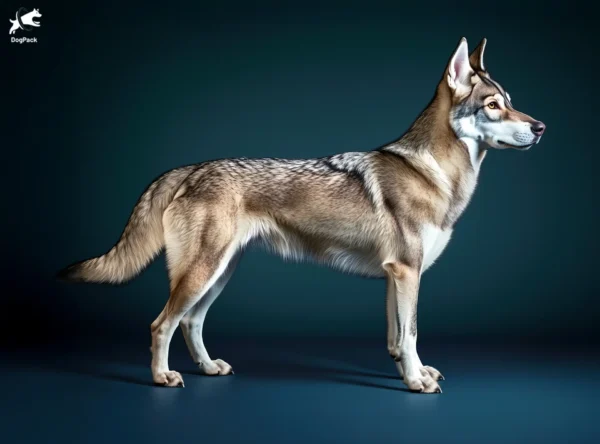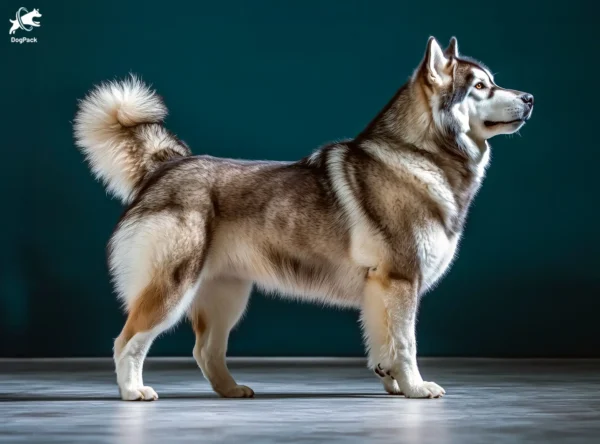Wolfdog Dog Breed Info & Overview
The Wolfdog, a mesmerizing hybrid of domestic dog and wolf, brings a touch of the wild into your home. Known for their loyalty and striking appearance, these captivating companions are a unique blend of nature and nurture. While not for the faint-hearted, Wolfdogs offer unparalleled bonds and a glimpse into the untamed spirit of their ancestry for those ready to embrace their adventurous nature.
Characteristics
Pictures
Breed History
The Wolfdog has a history as intriguing as its name suggests. This unique hybrid results from crossing domestic dogs with wild wolves, a practice that dates back centuries. Initially, Wolfdogs were bred to combine the strength and survival instincts of wolves with the trainability and companionship of dogs. Due to their close genetic ties, Wolfdogs are among the dogs closest to wolves genetically.
In the 20th century, intentional breeding of Wolfdogs became more systematic, especially in Europe and the United States. Breeds like the Czechoslovakian Wolfdog were developed for military and working purposes, aiming to harness the wolf’s endurance and adaptability.
Today, Wolfdogs are gaining popularity among enthusiasts who are captivated by their wild allure. However, they remain a controversial breed due to their complex nature and the challenges they present. Understanding their history is crucial for anyone considering welcoming a Wolfdog into their home.
Temperament, Personality
Wolfdogs are known for their intelligence and independence, traits inherited from their wild ancestors. They are highly curious and require mental stimulation to keep them engaged. Their loyalty is profound, but they often form strong bonds with one person rather than a family.
When it comes to children and other pets, Wolfdogs can be unpredictable. Their high prey drive may pose challenges in households with small animals. Early socialization is essential to help them differentiate between family members and potential prey. Supervision is always recommended during interactions.
Strangers may find Wolfdogs aloof or even wary, as these hybrids tend to be naturally cautious. They are not typically aggressive without provocation but can be protective of their territory. Owners should invest time in socializing their Wolfdog to various environments and people to foster balanced behavior.
Physical Characteristics
Wolfdogs possess a striking appearance that closely resembles their wild counterparts. They typically have a thick double coat that comes in shades of gray, white, black, or a mix. Their eyes can range from amber to brown, and occasionally, they may have striking blue eyes inherited from certain dog breeds.
Standing between 26 to 34 inches tall and weighing anywhere from 60 to 120 pounds, Wolfdogs are robust and athletic. Their physical build is lean yet muscular, designed for endurance and agility. They have long legs and a bushy tail, adding to their wolf-like silhouette.
Distinctive features include their erect ears and elongated snout, which enhance their keen senses. The Wolfdog’s physical traits can vary widely depending on the percentage of wolf heritage and the domestic dog breed involved in the cross. This makes each Wolfdog uniquely captivating.
Health Issues
Wolfdogs are generally healthy animals, benefiting from hybrid vigor. However, they can still be prone to certain health issues common in large breeds, such as hip dysplasia and elbow dysplasia. Regular veterinary check-ups are essential to monitor their joint health and overall well-being.
Due to their dense coats, Wolfdogs may also be susceptible to skin conditions if not properly groomed. Parasites like fleas and ticks can cause significant discomfort and lead to infections. Preventive treatments and routine grooming can help mitigate these risks.
It’s important to note that Wolfdogs may not respond to some medications in the same way domestic dogs do. Owners should seek out veterinarians experienced with wolf hybrids to ensure appropriate medical care. A balanced diet and regular exercise also play crucial roles in maintaining their health.
Grooming Needs
Wolfdogs have a thick double coat that sheds seasonally, known as “blowing” their coat. During these periods, typically in spring and fall, they require daily brushing to remove loose fur and prevent matting. Outside of shedding seasons, weekly brushing is sufficient to maintain their coat’s health.
Bathing should be done sparingly, as over-washing can strip the natural oils from their skin and coat. Unless they get into something particularly dirty or smelly, a bath every few months is adequate. Use dog-friendly shampoos that are gentle on their skin.
Their nails grow quickly and need regular trimming to prevent overgrowth and splitting. Dental hygiene is also important; brushing their teeth several times a week can prevent tartar buildup and gum disease. Ears should be checked regularly for signs of infection or buildup.
Exercise Requirements
Wolfdogs are high-energy animals that require ample exercise to stay happy and healthy. They need at least two hours of vigorous activity each day. This can include long walks, runs, or hikes in secure areas where they can explore without posing a risk to wildlife or other pets.
Mental stimulation is just as important as physical exercise. Puzzle toys, obedience training, and agility courses can help keep their sharp minds engaged. Without sufficient stimulation, Wolfdogs may become bored and resort to destructive behaviors to entertain themselves.
Interactive playtime with their owner strengthens the bond and provides additional exercise. Activities like fetch may not always appeal to their independent nature, so experimenting with different games is key. Remember, a tired Wolfdog is a well-behaved Wolfdog.
Training Tips
Training a Wolfdog requires patience, consistency, and experience. Their intelligence and independence can make them challenging for novice owners. Positive reinforcement techniques work best, as harsh methods may lead to distrust or aggression. Early training is essential to establish boundaries and acceptable behaviors.
Socialization from a young age is crucial. Exposing them to different environments, people, and animals can help mitigate their natural wariness. However, always ensure that introductions are controlled and positive to prevent fear or aggressive responses.
Due to their strong pack instincts, Wolfdogs respond well to a clear hierarchy within the household. The owner must establish themselves as a confident and fair leader. Professional training classes, especially those experienced with wolf hybrids, can provide valuable support.
Nutrition, Diet
Wolfdogs have dietary needs that lean towards their wild heritage. A high-protein diet is essential, often requiring more meat-based nutrients than typical dog food provides. Raw or BARF (Biologically Appropriate Raw Food) diets are commonly recommended but should be formulated under the guidance of a veterinarian experienced with Wolfdogs.
Portion sizes can vary based on age, size, and activity level, but an average adult Wolfdog may consume between 2 to 4 pounds of raw food daily. This can include a mix of raw meats, bones, organs, and a small percentage of vegetables and fruits. Always ensure meats are fresh to prevent bacterial infections.
Avoid foods high in grains and fillers, as these do not align with their natural diet and can cause digestive issues. Supplements like fish oil may be beneficial for coat health. It’s crucial to monitor their weight and adjust portions accordingly to prevent obesity or malnutrition.
Adoption, Breeders
Adopting a Wolfdog is a significant commitment that requires thorough research. Reputable breeders should provide detailed lineage information and be transparent about the wolf content percentage. It’s crucial to visit the breeder, observe the animals, and ask questions about temperament and care requirements.
Rescue organizations specializing in Wolfdogs can be another avenue. These groups often have animals in need of homes due to owners being unprepared for the responsibilities. Groups like the Wolfdog Rescue Resources offer information on adoption and education.
Be aware of local laws and regulations, as Wolfdogs are restricted or prohibited in some areas. Consult with authorities to ensure compliance before bringing a Wolfdog home. The International Wolf Center provides valuable resources on Wolfdog ownership and legal considerations.
Family Pet?
Wolfdogs are not typically recommended for families with young children. Their high energy levels and strong prey drive can make interactions unpredictable. They may not understand the difference between a child and prey, especially if the child is running or squealing, which can trigger instinctual behaviors.
In households with other pets, Wolfdogs may view smaller animals as prey. Careful introductions and constant supervision are necessary. They might coexist better with larger dogs, but dominance issues can arise. Each Wolfdog’s behavior can vary significantly based on their wolf content and upbringing.
For experienced owners who understand their needs, Wolfdogs can form deep bonds and be rewarding companions. However, they thrive best in environments where they have plenty of space and minimal opportunities for conflict with family members or other pets.
Right For You?
Considering a Wolfdog requires an honest assessment of your ability to meet their unique needs. They are best suited for individuals with experience handling high-energy, independent breeds. A large, securely fenced property is essential to provide them with the space they need to roam safely.
Time commitment is significant; Wolfdogs need extensive exercise and mental stimulation. They are not the breed for someone who is frequently away from home or prefers a low-maintenance pet. Their training and socialization demands are higher than those of typical domestic dogs.
If you’re captivated by the idea of sharing your life with a creature that embodies both wild and domestic traits, and you’re prepared for the challenges, a Wolfdog might be the right companion. Thorough research and preparation are key to a successful partnership.
Note: Owning a Wolfdog comes with significant responsibilities and legal considerations. Always conduct thorough research and consult professionals when considering this unique breed.
Conclusion
Bringing a Wolfdog into your life is not a decision to be taken lightly. These captivating hybrids offer a unique blend of wild and domestic qualities that can be incredibly rewarding for the right person. They require experienced handling, ample space, and a deep commitment to their well-being. If you’re prepared to meet these challenges, the Wolfdog can be an extraordinary companion that brings a touch of the wild into your everyday life. However, it’s crucial to ensure you’re fully informed and prepared for the responsibilities that come with owning such a unique animal.
FAQs
-
Are Wolfdogs legal to own?
Wolfdog ownership legality varies by location. Some states or countries have strict regulations or bans on owning Wolfdogs due to their wild heritage. It’s essential to check local laws and obtain any necessary permits before considering a Wolfdog as a pet.
-
How much wolf is in a Wolfdog?
The wolf content in a Wolfdog can range from low to high percentages. This depends on how many generations removed the animal is from its wolf ancestors. Higher wolf content Wolfdogs may exhibit more wild behaviors and require specialized care.
-
Do Wolfdogs make good guard dogs?
Wolfdogs are typically not ideal guard dogs. While they may be protective of their territory, their natural wariness of humans can make them unpredictable. They might avoid confrontation rather than confront an intruder, unlike traditional guard dog breeds.
-
Can Wolfdogs be kept in apartments?
Keeping a Wolfdog in an apartment is not recommended. Their high energy levels and need for space make apartments unsuitable. Wolfdogs require large, secure outdoor areas to roam and exercise to prevent boredom and destructive behaviors.
-
What is the difference between a Wolfdog and a domesticated dog?
Wolfdogs are hybrids between wolves and domestic dogs, inheriting traits from both. They may exhibit more wild behaviors, such as increased prey drive and independence. Domesticated dogs have been bred over thousands of years to live alongside humans and are generally more adaptable to domestic life.
Breed Ratings
Wolfdogs are exceptionally intelligent, often figuring out puzzles and situations quickly, which can be both rewarding and challenging.
They can be playful but often on their own terms. Their independent nature means they might not engage in typical dog games.
High energy levels mean they need extensive daily exercise to prevent boredom and maintain their physical health.
With their thick double coats, Wolfdogs shed moderately year-round and heavily during seasonal changes.
A strong prey drive is inherited from their wolf ancestry, making them prone to chasing smaller animals.
Regular grooming is required due to heavy shedding, especially during coat-blowing seasons.
While intelligent, their independent streak can make training challenging; consistency and patience are key.
They prefer companionship and can become anxious or destructive if left alone for extended periods.
Wolfdogs may howl more than bark, especially in response to sirens or other high-pitched sounds.
Generally, Wolfdogs are not prone to excessive drooling compared to some other large breeds.
They may get along with other large dogs but can be territorial; socialization is important.
Typically healthy due to hybrid vigor, but regular veterinary care is essential to monitor for any issues.

